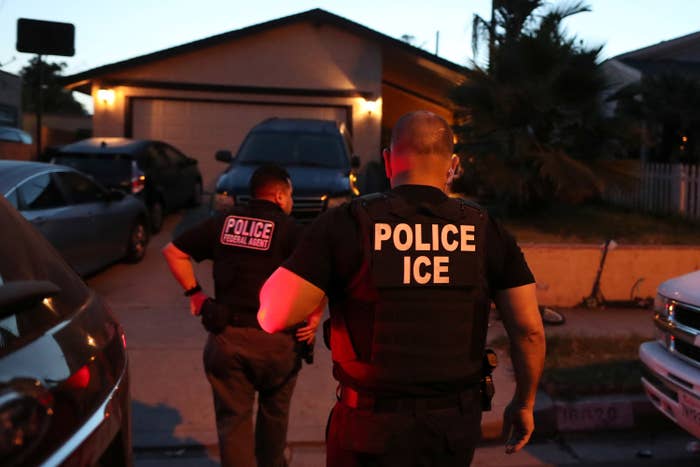
The Supreme Court on Monday refused to take up the Trump administration's challenge to California's so-called sanctuary law that placed statewide limits on local law enforcement cooperation with federal immigration authorities.
The Trump administration had asked the Supreme Court to review a lower court's opinion upholding the California Values Act. Justices Clarence Thomas and Samuel Alito, two of the court's conservative justices, voted to hear the case.
Under the law, SB 54, local police are barred from notifying US Immigration and Customs Enforcement (ICE) that they are holding a suspect. They are also barred from transferring a detainee to ICE custody unless that person has been convicted of a felony under California law, had been jailed for a felony within the past 15 years, or served time in the previous five years for a misdemeanor that could have been charged as a felony. Local police also can inform ICE of individuals when a judge has ruled there is probable cause to hold that person for a violent felony.
In a statement, California Attorney General Xavier Becerra said the last thing the state should do is erode the trust between immigrant communities and law enforcement. “The Trump Administration does not have the authority to commandeer state resources. We’re heartened by today’s Supreme Court decision,” Becerra said.
In March 2018, the Justice Department filed a lawsuit against SB 54 and two other so-called sanctuary laws, arguing that they conflict with federal immigration laws and actively obstructed federal law enforcement.
But a federal district court judge refused to issue an injunction on the parts of SB 54 being challenged by the Trump administration. US District Judge John Mendez said California's “decision not to assist federal immigration enforcement in its endeavors is not an ‘obstacle’ to that enforcement effort” because “refusing to help is not the same as impeding.”
The 9th Circuit Court of Appeals agreed with Judge Mendez's ruling.
Additionally, the law, also known as the California Values Act, prohibits police from asking people about their immigration status and bars officers from being deputized as immigration agents. It also bars ICE agents from interviewing people in local and state jails without the inmate's written agreement in advance.
The law also prohibits local police and sheriffs from making arrests on civil immigration warrants, detaining people on the basis of immigration holds, or sharing private information about people — including addresses — with ICE.
The California Values Act also prohibits federal immigration officials from maintaining permanent offices in California jails. However, the legislation was a watered-down version of the original bill that was introduced in December 2017 after negotiations due to concerns from law enforcement and former governor Jerry Brown.
